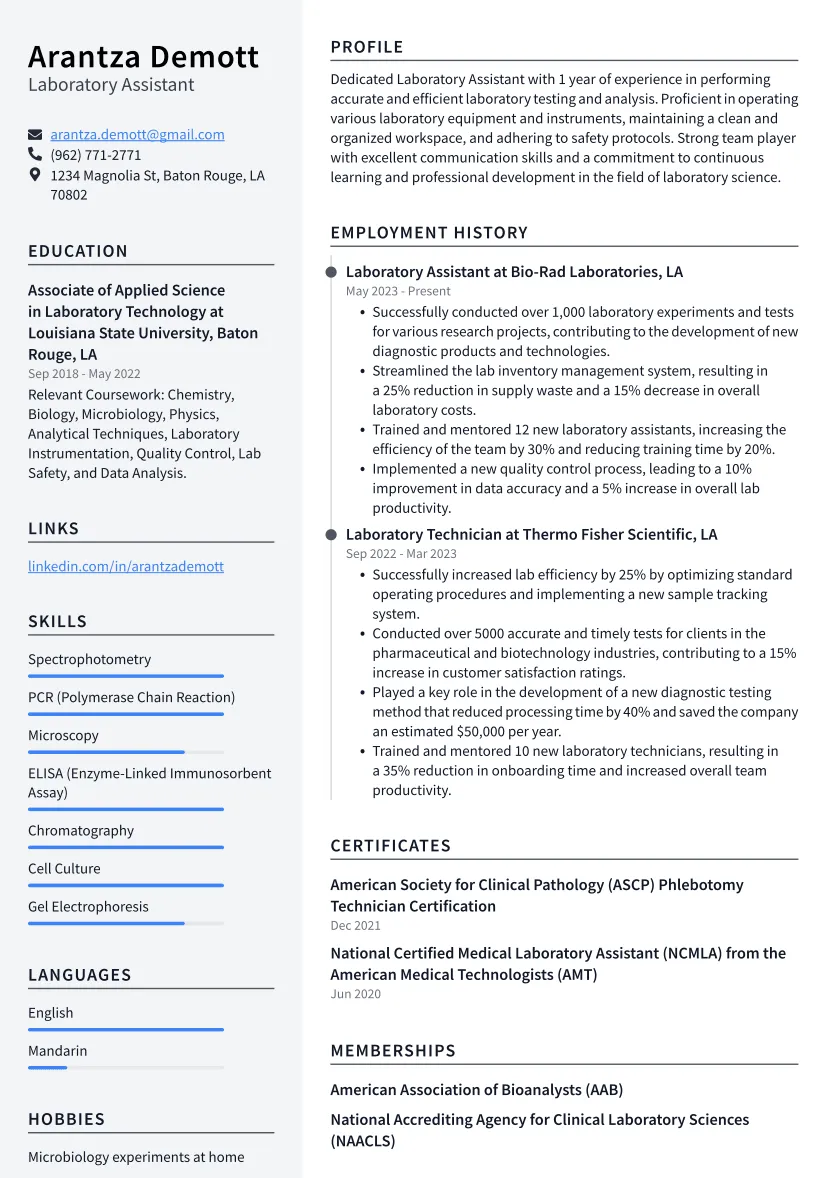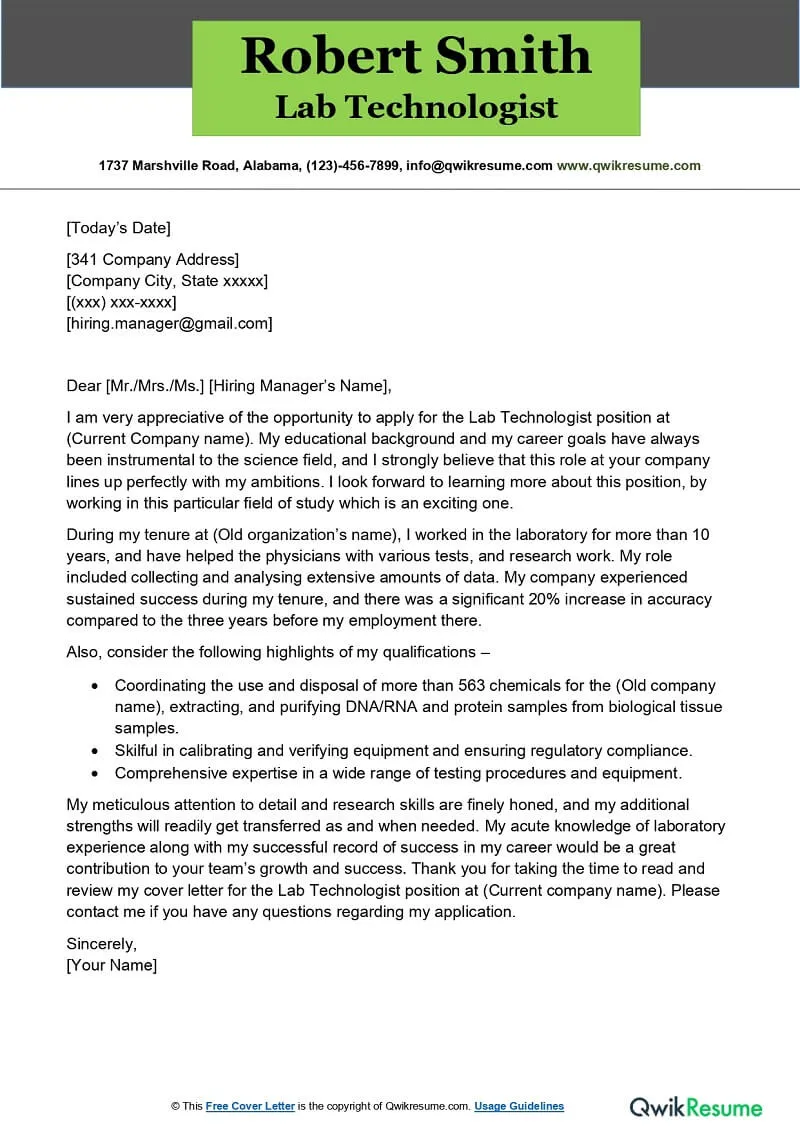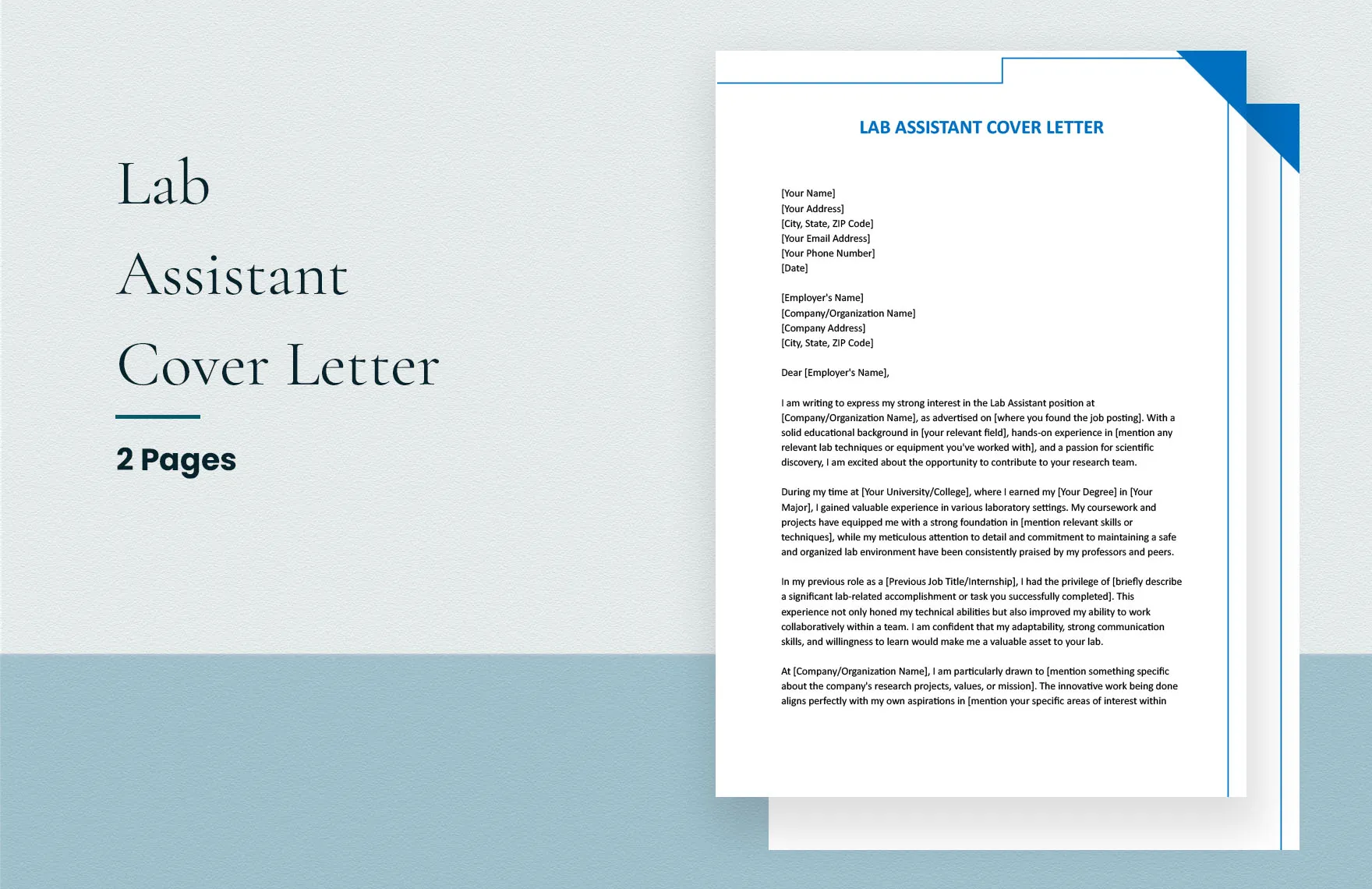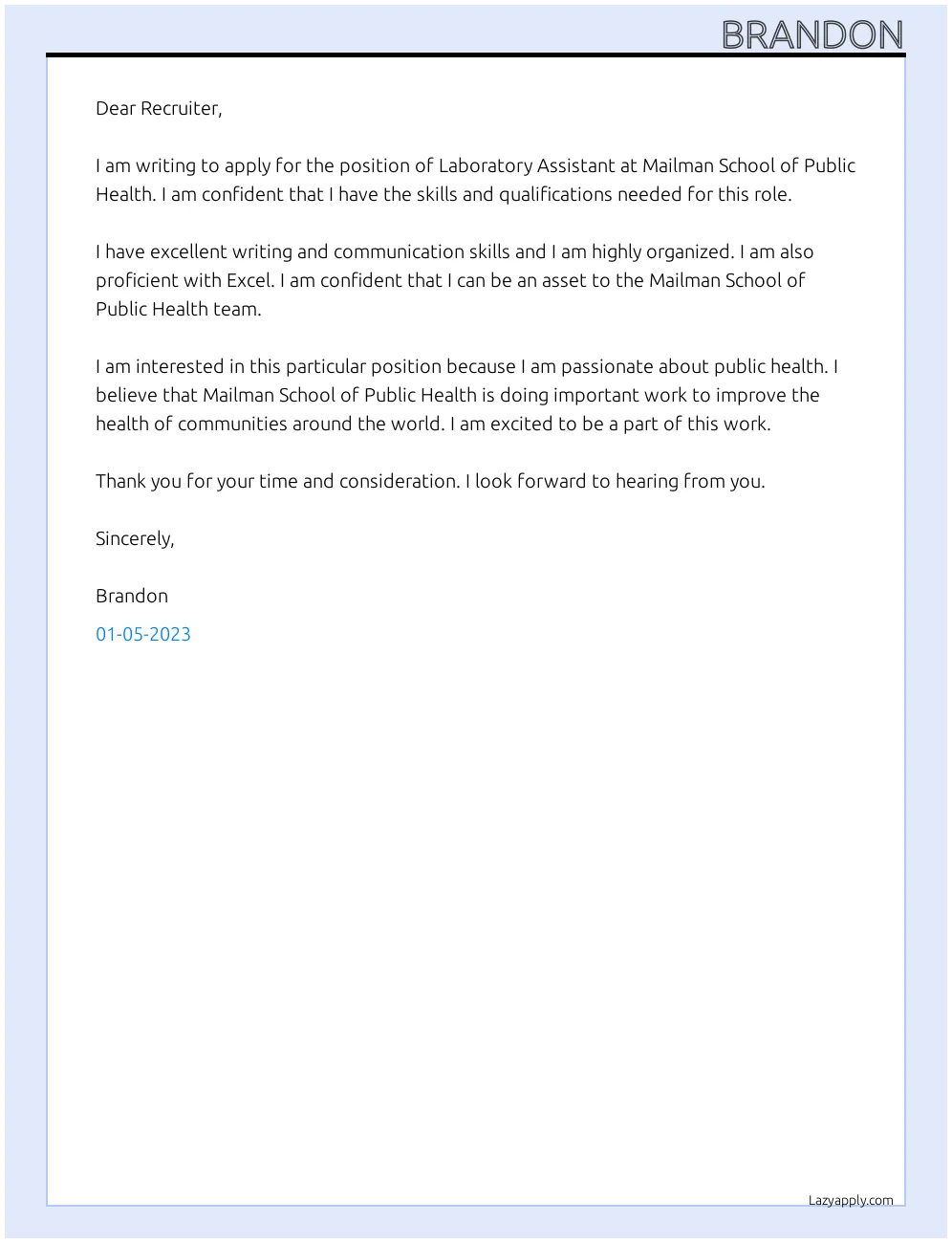Essential Cover Letter Laboratory Assistant Tips
Landing a laboratory assistant position requires more than just a strong resume, it necessitates a compelling cover letter that captures the attention of hiring managers. A well-crafted cover letter is your opportunity to showcase your skills, experience, and passion for the role. It’s the perfect place to demonstrate why you are the ideal candidate. To help you succeed, here are the top 5 tips for writing a cover letter that will make you stand out from the competition. Remember, the cover letter is your first impression, and it should be a reflection of your professionalism and attention to detail. This guide will help you navigate the process, increasing your chances of securing an interview and, ultimately, the job.
Highlight Your Skills and Experience
Your cover letter should serve as a highlight reel of your most relevant skills and experiences. Begin by carefully reviewing the job description and identifying the key requirements. Then, select the skills and experiences that directly align with these requirements. For instance, if the job description emphasizes experience with specific laboratory equipment, be sure to mention your familiarity with those instruments. This is where you can shine and showcase how your background matches the needs of the laboratory. Don’t just list your skills; provide brief examples of how you’ve used them successfully in the past. Your goal is to demonstrate that you are not just qualified on paper, but a capable and experienced professional who can hit the ground running.
Quantify Your Achievements

Instead of just listing your responsibilities, quantify your achievements whenever possible. Use numbers and data to demonstrate the impact of your work. For example, instead of saying “Managed laboratory inventory”, you could say “Managed laboratory inventory, reducing waste by 15% within one year.” Adding these kinds of details makes your achievements more tangible and impressive. This approach provides concrete evidence of your capabilities. Be specific, and provide context for your accomplishments. This level of detail not only shows that you understand the importance of data, but also that you can deliver measurable results, a quality that hiring managers value highly in laboratory assistants. This step transforms your application from simply stating what you did, into demonstrating what you achieved.
Tailor to the Job Description
A generic cover letter will likely end up in the rejection pile. Customization is key. Each job application should be accompanied by a tailored cover letter. Read the job description carefully and address each of the key requirements. Highlight how your skills and experience align with the specific needs of the laboratory. This shows that you’ve taken the time to understand the role and that you are genuinely interested in the opportunity. When you demonstrate this level of personalization, you increase your chances of getting noticed and demonstrating that you’re the right fit for the role. Make it clear that you are not just sending out mass applications, but that you are seriously considering the position and its unique demands.
Research the Laboratory
Before you start writing, research the laboratory. Understanding the laboratory’s mission, values, and the types of research they conduct will help you tailor your cover letter to their specific needs. This shows initiative and a genuine interest in the position. Mention specific projects or research areas that resonate with your experience and interests. If you know something about the lab’s current projects, and you can discuss your relevant experience, it will make your application more compelling. This shows that you’re not just looking for any job; you’re looking for the right job. Demonstrating that you have knowledge of the organization and its goals showcases your commitment and your ability to contribute meaningfully.
Demonstrate Your Passion

A cover letter is your chance to show your passion for science and laboratory work. Enthusiasm can set you apart from other candidates. Share your reasons for pursuing a career as a laboratory assistant. Discuss what you find most exciting about scientific research and the specific area of work the lab does. This could involve the satisfaction of meticulous work, the excitement of new discoveries, or the collaborative spirit of the lab team. If you have personal anecdotes or a story that illustrates your passion, incorporate it. It could be the moment you first became fascinated by science, a project you are particularly proud of, or the aspect of laboratory work that excites you. Authenticity is compelling, and highlighting your personal connection to the field will leave a positive impression.
Showcase your skills for the role
Tailor your cover letter to showcase the skills most relevant to the laboratory assistant role you are applying for. While you’ll likely mention technical skills like experience with specific equipment and methodologies, don’t forget to highlight transferable skills that are essential for success. This includes attention to detail, organizational skills, problem-solving abilities, and the capacity to work well within a team. You want to provide evidence for these capabilities by giving examples of how you have used these skills in previous roles or experiences. Describe situations where your organizational skills helped to improve efficiency, or instances where your attention to detail prevented errors. Show, don’t just tell, how you excel in these crucial areas for a laboratory assistant. Highlighting these soft skills will demonstrate your overall suitability for the position, increasing your chances of securing an interview.
Proofread and Edit
Errors in a cover letter can be a quick way to disqualify yourself. Your cover letter must be impeccably written, free of grammatical errors and typos. Take the time to carefully proofread your cover letter several times. Read it out loud to catch any awkward phrasing or mistakes that you might miss when reading silently. This will make sure that you clearly convey your message and the information is easy to understand. Many word processing programs have spell-check and grammar-check features, but these are not foolproof. Consider asking a friend, family member, or career advisor to review your cover letter as well. A fresh set of eyes can often spot errors that you might have missed. The goal is to ensure that your cover letter is professional, polished, and accurately reflects your abilities. A cover letter full of errors implies a lack of attention to detail, a crucial skill for a laboratory assistant.
Ensure flawless grammar and spelling

Your cover letter serves as a direct reflection of your professionalism, knowledge, and communication skills. The use of proper grammar and spelling is essential for creating a positive first impression. Grammatical errors, spelling mistakes, and poor punctuation can undermine your credibility and suggest a lack of attention to detail, which is critical in a laboratory setting. It’s important to proofread carefully and check that all your sentences flow correctly. Always double-check the names of the hiring manager and the lab you are applying to. Use correct formatting. These details contribute to the overall professionalism of your application. Make sure your cover letter is clear, concise, and easy to read. It should also be free of jargon and technical terms that might be misunderstood.
Maintain a Professional Tone
A professional tone is essential for your cover letter. Maintain a formal yet friendly tone throughout your letter. Avoid slang, casual language, or overly familiar phrasing. You need to strike the right balance between showing your personality and maintaining a professional demeanor. Your tone should reflect your respect for the laboratory and the position you’re applying for. The cover letter is not the place for humor or controversial opinions. Keep it professional and focused on your qualifications and your enthusiasm for the role. Use a tone that’s suitable for a professional environment.
Use professional language
Use professional language. Choose your words carefully and avoid using colloquialisms, contractions, and informal language. The language you use should be clear, concise, and to the point. This language should also align with the style of writing expected in the lab environment. If you are unsure of the appropriate language, consult resources or samples of professional cover letters. Always use proper grammar and punctuation. By using professional language, you will demonstrate your ability to communicate effectively in a professional setting. Your writing reflects how you represent yourself. Remember that your cover letter is your opportunity to make a strong first impression and set yourself apart from the other candidates.
